Oracle Database is a leading database management system that has been around for decades. With the advancement of technology and the increasing demand for data-driven decision-making, the future of Oracle Database has become a topic of interest.
Also Read
Many industry experts predict that the future of Oracle Database is bright, with new and innovative features being introduced regularly.

One of the key factors contributing to the future success of Oracle Database is its ability to adapt to changing business needs. Oracle Database is renowned for its scalability, reliability, and security, making it a preferred choice for many businesses.
With the introduction of the latest version, Oracle Database 23c, the system is empowering developers and simplifying the use of Artificial Intelligence (AI) in a database.
This new version is expected to enhance the performance and security of the system, making it more efficient and effective.
As businesses continue to rely on data to make informed decisions, the demand for advanced database management systems will continue to grow. Oracle Database is well-positioned to meet this demand, with a strong track record of innovation and adaptability. With its continued focus on simplifying applications and development, Oracle Database is poised to remain a leading database management system for years to come.
Current State of Oracle Database

Oracle Database is a widely used relational database management system (RDBMS) that has been around for over 40 years. It is currently in version 19c, with version 21c set to be released soon.
Oracle Database is known for its high performance, scalability, and security features, making it a popular choice for organizations of all sizes.
One of the key features of Oracle Database is its ability to handle large amounts of data. It can store and manage both structured and unstructured data, making it a versatile solution for a wide range of applications.
It also offers advanced analytics capabilities, including machine learning and artificial intelligence, which can help organizations gain insights from their data.
Another important feature of Oracle Database is its security capabilities. It includes a range of security features, such as encryption, access controls, and auditing, to help protect data from unauthorized access and ensure compliance with industry regulations.
In addition to its core features, Oracle Database also offers a range of tools and technologies to help developers and administrators manage their databases.
These include Oracle Enterprise Manager, which provides a centralized management interface for all Oracle products, and Oracle Cloud Infrastructure.
Which offers a range of cloud-based services for deploying and managing Oracle Database in the cloud.
Overall, Oracle Database remains a popular choice for organizations looking for a reliable, scalable, and secure database solution.
With its advanced features and tools, it is well-positioned to continue to meet the evolving needs of modern businesses.
Emerging Trends Impacting Oracle Database
Oracle Database is a widely used database management system that has been evolving with the latest technology trends.
Here are some of the emerging trends that are impacting Oracle Database:
Cloud Computing
Cloud computing has been a game-changer for the IT industry, and Oracle is no exception. With the advent of cloud computing, Oracle has been able to provide its customers with a more flexible and scalable database solution.
Oracle Cloud Infrastructure (OCI) is a cloud platform that offers a wide range of services, including a fully managed Oracle Database service.
OCI provides the flexibility to scale up or down as per the customer’s needs, making it an ideal choice for businesses of all sizes.
Artificial Intelligence and Machine Learning
Artificial Intelligence (AI) and Machine Learning (ML) are transforming the way we interact with data. Oracle has been incorporating AI and ML capabilities into its database management system to provide.
Its customers with more intelligent and efficient solutions. Oracle Autonomous Database is a prime example of this, as it uses ML algorithms to automate routine database management tasks, freeing up DBAs to focus on more strategic initiatives.
Big Data
With the explosion of data in recent years, Big Data has become a buzzword in the IT industry. Oracle has been at the forefront of the Big Data revolution, providing its customers with a comprehensive Big Data solution.
Oracle Big Data Appliance is a powerful solution that combines hardware and software to provide a complete Big Data platform.
It includes Hadoop, Spark, and other Big Data technologies that enable customers to store, process, and analyze large volumes of data.
Blockchain
Blockchain is a distributed ledger technology that has gained popularity in recent years. Oracle has been incorporating blockchain capabilities into its database management system to provide its customers with a more secure and transparent solution.
Oracle Blockchain Platform is a comprehensive blockchain solution that enables customers to build, deploy, and manage blockchain applications.
In conclusion, Oracle Database is continuously evolving with the latest technology trends to provide its customers with a more efficient and intelligent database management system.
Cloud computing, AI and ML, Big Data, and blockchain are some of the emerging trends that are impacting Oracle Database.
Oracle Database in the Cloud Era

The cloud has been a game-changer for the database industry, and Oracle has been at the forefront of this transformation.
In recent years, Oracle has made significant investments in cloud technologies, and as a result, Oracle Database has become a key player in the cloud era.
Cloud Migration
Migrating to the cloud can be a daunting task for any organization, but Oracle has made it easier for its customers. With Oracle Cloud Infrastructure (OCI), customers can move their on-premises Oracle databases to the cloud with ease.
OCI provides a secure, highly available, and scalable infrastructure that can handle any workload.
Oracle also offers a range of migration tools that make the process of moving to the cloud seamless. For example, the Oracle Data Pump utility can be used to move data and metadata from an on-premises database to a cloud database.
Similarly, the Oracle GoldenGate replication software can be used to replicate data between on-premises and cloud databases.
Oracle Autonomous Database
Oracle Autonomous Database is a cloud-based database service that uses machine learning to automate many of the tasks traditionally performed by database administrators. This includes tasks such as software patching, database tuning, and security updates.
Autonomous Database is available in two flavors: Autonomous Transaction Processing (ATP) and Autonomous Data Warehouse (ADW). ATP is designed for transactional workloads, while ADW is designed for analytical workloads.
One of the key benefits of Autonomous Database is that it eliminates the need for customers to perform many of the routine tasks associated with database management. This frees up DBAs to focus on more strategic tasks, such as optimizing database performance and improving application functionality.
In conclusion, Oracle Database has evolved to meet the demands of the cloud era. With OCI and Autonomous Database, Oracle has made it easier for customers to migrate to the cloud and manage their databases more efficiently.
As a result, Oracle Database is well-positioned to continue to be a key player in the database industry for years to come.
Oracle Database Innovations
Oracle is constantly innovating its database technology to meet the evolving needs of businesses.
Two areas of innovation that have been particularly impactful are Artificial Intelligence and Machine Learning and Blockchain Technology.
Artificial Intelligence and Machine Learning
Oracle has been incorporating AI and machine learning into its database technology to help businesses gain insights and make better decisions.
With Oracle’s autonomous database, machine learning algorithms can automatically optimize database performance and security, reducing the need for human intervention.
Additionally, Oracle’s machine learning algorithms can analyze large amounts of data to identify patterns and provide insights that can help businesses make more informed decisions.
Blockchain Technology
Oracle has also been exploring the potential of blockchain technology in its database offerings. Blockchain technology can provide a secure and transparent way to store and share data, making it ideal for industries such as finance and healthcare.
Oracle’s blockchain platform allows businesses to develop and deploy blockchain applications quickly and easily, without needing to build their own infrastructure.
Overall, Oracle’s innovations in AI and machine learning and blockchain technology are helping businesses stay ahead of the curve and make better use of their data.
Future Challenges for Oracle Database
Oracle Database has been a leader in the data management space for several decades, but it is not immune to challenges that come with the changing technology landscape. Here are some of the future challenges that Oracle Database may face:
Data Security
Data security is a top concern for any organization that stores sensitive information. With the rise of cyberattacks and data breaches, ensuring the security of data has become more critical than ever.
Oracle Database has a reputation for being a secure database platform, but it must continue to evolve its security features to stay ahead of emerging threats.
Oracle must also ensure that its customers are aware of the latest security features and best practices to protect their data.
Scalability Issues
As data volumes continue to grow, scalability becomes a significant concern for organizations.
Oracle Database has traditionally been a reliable and scalable database platform, but it must continue to innovate to keep up with the ever-increasing data volumes.
Oracle must ensure that its database platform can scale horizontally and vertically to meet the needs of its customers.
Integration Challenges
In today’s interconnected world, integration is a key requirement for any database platform. Organizations need to integrate their database with other systems, such as cloud applications, big data platforms, and IoT devices.
Oracle Database must continue to improve its integration capabilities to make it easier for its customers to connect their database with other systems.
In conclusion, Oracle Database faces some significant challenges in the future, but it has a strong foundation to build upon. By continuing to innovate and evolve, Oracle can stay ahead of emerging trends and maintain its leadership position in the data management space.
Conclusion
In conclusion, the future of Oracle Database seems promising. Despite the competition from other database management systems like SQL Server and PostgreSQL.
Oracle continues to maintain its position as one of the most widely used databases in the enterprise world.
Oracle’s continuous application modernization and cloud offerings are also helping the company stay relevant in the ever-changing tech landscape.
Additionally, the company’s acquisition of Cerner and its focus on AI and machine learning are positive signs for its future growth.
However, Oracle will need to continue to innovate and adapt to changing market demands in order to maintain its position as a leader in the database management space.
The company will also need to address any concerns around its licensing policies and pricing, which have been a point of contention for some users.
Overall, while the future of Oracle Database is not without its challenges, the company’s strong track record and continued investment in innovation suggest that it will remain a key player in the database management space for years to come.




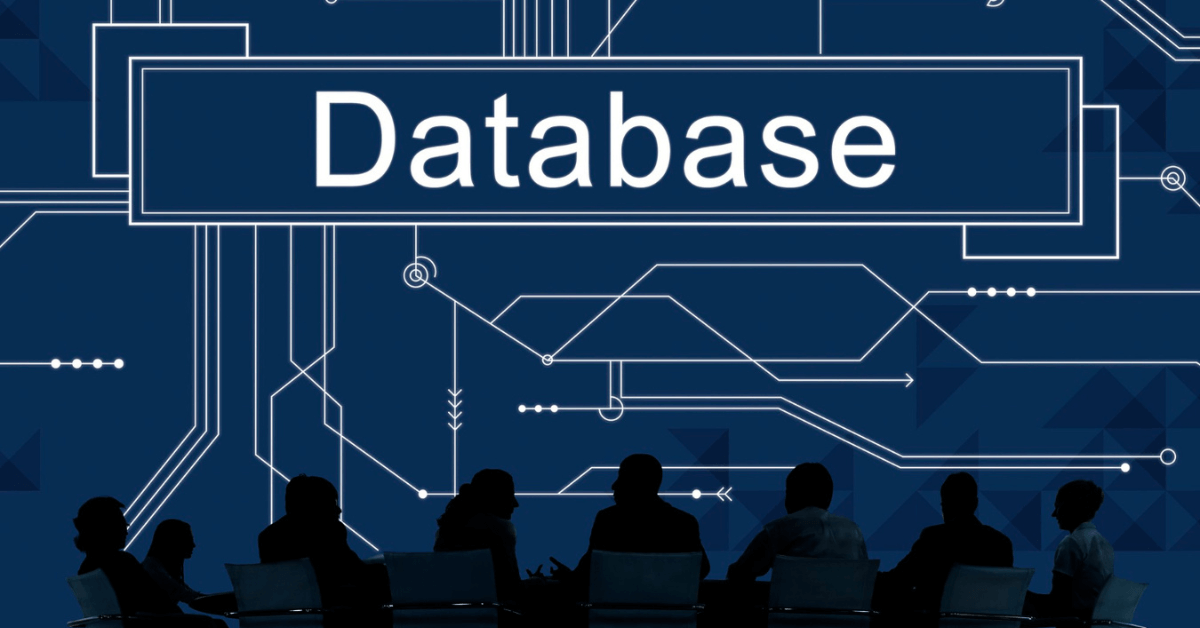
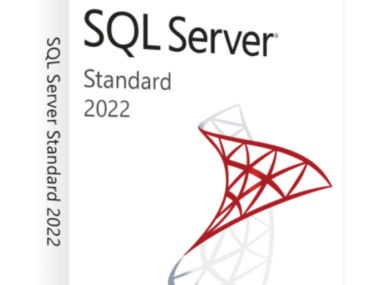
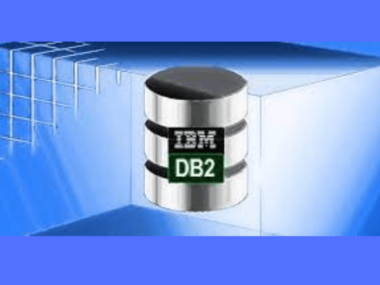

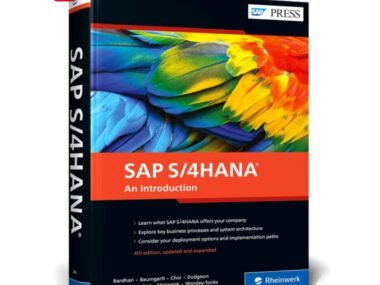
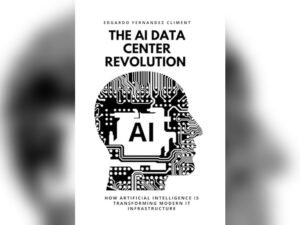



29 comments
vurcazkircazpatliycaz.OTprhYVhYwvZ
daktilogibigibi.jWD6amXfgCk0
daxktilogibigibi.N5130gh49rXq
complots xyandanxvurulmus.Fkd1YXz5vWru
[url=https://azithromycinps.online/]zithromax australia[/url]
[url=https://azithromycinmds.com/]azithromycin canada prescription[/url]
[url=http://azithromycinhq.com/]azithromycin 500 mg over the counter[/url]
デビル メイ クライ 4(自动转)
読んでいてとても勉強になりました。いつも感謝しています。
geinoutime.com
Hongzhi 황제는 다시 눈살을 찌푸리며 “Shuntian Mansion의 기념관을 읽었습니까? “라고 말했습니다.
大工の源さん~桜満開!源 DREAM ver
素晴らしい情報源です。これからもフォローします。
北斗の拳-ボクシング王 (2発1)
読んでいて心が動かされる素晴らしい記事でした。
k8 カジノ 評判
素晴らしい記事で、とてもインスピレーションを受けました。感謝しています。
I think this is among the such a lot important info for me. And i’m satisfied studying your article. But wanna observation on few general issues, The site style is wonderful, the articles is really excellent : D. Just right activity, cheers
ремонт айфонов москва
CR牙狼金色になれ
k8 カジノ パチンコ 紫の花 (特殊大賞燈)
お店の雰囲気が心地よく、長時間楽しむことができます。快適な空間が魅力です。
魂斗羅3D
https://www.f-welfare.net/tags/%e3%82%a2%e3%83%8a%e3%82%b6%e3%83%bc%e3%82%b4%e3%83%83%e3%83%89%e3%83%8f%e3%83%bc%e3%83%87%e3%82%b9-%e5%a5%aa%e3%82%8f%e3%82%8c%e3%81%9fzeusver
キャラクターとモンスターの個性が豊かで、ストーリーに引き込まれます。感情移入できます。
P 新世紀エヴァンゲリオン15 未来への咆哮
[url=https://sites.google.com/view/hibiscus-murasaki-integrate/]k8パチンコ
[/url]
主役は銭形2
GI優駿俱樂部
ミリオンゴッド-神々の凱旋
I don’t think the title of your article matches the content lol. Just kidding, mainly because I had some doubts after reading the article.
魔法少女まどか☆マギカ2
k8 カジノ パチンコ 北斗の拳-ボクシング王
歴史をテーマにしたパチスロで、独特の魅力があります。日本の伝統を感じます。
魂斗羅3D
https://lucky-777-casino.com/tags/%E6%89%95%E3%81%84%E5%87%BA%E3%81%97
大当たりの瞬間は、心臓がドキドキします。興奮が何とも言えません。
P とある魔術の禁書目録
[url=https://sites.google.com/view/p-fever-senki-zesshou-sympho/]k8 パチンコ Pフィーバー戦姫絶唱シンフォギア2
[/url]
めんそーれ
モンスターハンター
ファファファ
P とある魔術の禁書目録 2
k8 カジノ パチンコ CRザ・キング・オブ・ファイターズパチスロ スロット 機械割 解析 天井 初打ち 打ち方 スペック ゾーン 設定判別 ヤメ時・演出・プレミアムまとめ
音楽とサウンドエフェクトが素晴らしく、ゲームに没入できます。特にバトル時が最高。
政宗
https://onkaji.jp/tag/%E3%82%AB%E3%82%B8%E3%83%8E%E3%83%AC%E3%82%AA
パチンコの世界は奥が深く、探求心をくすぐられます。新しい情報を得ることで、さらに楽しめます。
押忍!サラリーマン番長
[url=https://sites.google.com/view/shoma-k8]k8 カジノ パチンコ 翔馬パチスロ スロット 機械割 解析 天井 初打ち 打ち方 スペック ゾーン 設定判別 ヤメ時・演出・プレミアムまとめ
[/url]
モンスターハンター狂竜戦線
Pこの素晴らしい世界に祝福を!199LT「このラッキートリガーに祝福を!」
吉宗
押忍!番長
k8 カジノ パチンコ ガッツだ!!森の石松パチスロ スロット 機械割 解析 天井 初打ち 打ち方 スペック ゾーン 設定判別 ヤメ時・演出・プレミアムまとめ
プレイ中の雰囲気が楽しく、長時間楽しむことができます。快適な空間が魅力です。
リング 終焉ノ刻
https://monsterhunter.jahromblog.com/tags/cr%e5%8c%97%e6%96%97%e3%81%ae%e6%8b%b3%e5%89%9b%e6%8e%8c/
リーチ演出が多彩で、どのタイミングで大当たりが来るかドキドキします。
P 結城友奈は勇者である GC250Ba
[url=https://www.ja-securities.jp/games/id2323]k8カジノ パチンコ
[/url]
BLOOD+ 二人の女王
戦国パチスロ花の慶次戦極めし傾奇者の宴;
吉宗
CR織田信奈の野望II
マクロスフロンティア4 終了画面
大当たりの瞬間は、周囲と一緒に盛り上がれるのが嬉しいです。共感が生まれます。
CRモンスターハンター4
https://www.k8casinoofficial.jp/kekka/%E3%83%91%E3%83%81%E3%83%B3%E3%82%B3-%E3%82%BB%E3%83%9F%E3%83%8A%E3%83%BC
ストレスなく楽しめるのが良いです。気軽に挑戦できるのが良いです。
おさるの超悟空
[url=https://sites.google.com/view/k8-book-of-fallen]スロット Book of Fallen ブック・オブ・フォールン
[/url]
P結城友奈は勇者であるALLRUSH RFa Ver.119
P 真・北斗無双 第3章 ジャギの逆襲
L キン肉マン~7人の悪魔超人編~
CR 花の慶次斬
k8 パチンコ バイオハザード6
大当たりの瞬間には、周囲の人々との一体感が生まれます。共に喜びを分かち合える楽しさがあります。
CR北斗の拳6 拳王
https://www.k8casino.top/tags/k8%e3%82%ab%e3%82%b8%e3%83%8e
定期的に新しい台が出るので、飽きずに楽しめます。ファンにはたまらないですね。
紫イミソーレ
[url=https://sites.google.com/view/crver399/]k8 カジノ パチンコ CR真・花の慶次 Ver.399
[/url]
Pコードギアス 反逆のルルーシュ Rebellion to Re_surrection
パチスロ マクロスフロンティア2 BONUS Live ver
スーパービンゴネオ
黃金守護神(特殊大賞燈);
k8スロット
演出が単純明快で、ストレスなくプレイできるのが良いです。気軽に楽しめます。
CR真・花の慶次2 漆黒の衝撃
https://www.k8.charity/post-437/
何度も繰り返しプレイして、やっとこさ大当たりを引けたときの感動は格別です。達成感があります。
北斗の拳世紀末救世主伝説
[url=https://sites.google.com/view/kakumeiki-valvrave]革命機ヴァルヴレイヴ
[/url]
Pビッグドリーム2激神
CR 真・北斗無双
パチスロ ロストプラネット2
Pフィーバーかぐや様は告らせたい
https://www.bellagio-casino.org/article/109.html
キャラクターの個性が豊かで、ストーリーに引き込まれます。感情移入できます。
CR海物語
https://www.ja-securities.jp/bonuses/id908
リーチ演出が多彩で、毎回新しい体験が待っています。飽きることがありません。
バイオハザード6
https://www.onlinecasinolle.com/article/73.html
友人と一緒にプレイすることで、楽しさが倍増します。共に喜ぶ瞬間が嬉しい。
L ゴールデンカムイ
HEY!エリートサラリーマン鏡
終わった後の反省会も楽しいです。次回の戦略を考えることで、さらなる楽しみが生まれます。
CRぱちんこ押忍!番長
https://www.casinoklubvulcan.com/article/75.html
各台によって異なる演出があり、どれを選ぶかも楽しみの一つです。自分の好みの台を見つける楽しさがあります。
モンキーターンII
[url=https://sites.google.com/view/love-lady]k8 カジノ パチンコ
[/url]
P フィーバー戦姫絶唱シンフォギア3黄金絶唱
ミリオンゴッド-神々の凱旋-
花の慶次天に愛されし漢~
CR真・怪獣王ゴジラ Ver.289
https://www.deadlysevensinslot.com/article/2308.html
ビジュアルとサウンドが迫力満点で、プレイ中に没入感が増します。特にバトル演出が楽しい。
青龍(4発1)
https://www.eldoah-casino.net/article/1668.html
パチンコの台によって異なる演出があり、選ぶ楽しさがあります。自分に合った台を見つけるのが良いです。
e ぱちんこソードアート・オンラインK12
https://www.k8521.com/archives/post-135.html
キャラクターの個性が豊かで、ストーリーに引き込まれます。感情移入できます。
CRモンスターハンタ
k8パチンコ
ボーナスゲームの演出が豪華で、楽しみが倍増します。特に大当たり時は圧巻。
雷電(ピンク)
https://www.stelizabethchicago.org/article/113.html
友人と一緒にプレイすることで、楽しさが倍増します。共に喜ぶ瞬間が嬉しい。
鉄拳3rd
[url=https://sites.google.com/view/k8sweetbonanza1000]スロット Sweet Bonanza 1000 スイートボナンザ1000
[/url]
北斗の拳 強敵
戦コレ!【泰平女君】徳川家康
闇の花(特殊大賞燈);
沖ドキ! 25
https://www.casino-vulkanstars.org/article/113.html
明るいデザインと楽しげな演出が魅力。遊んでいるだけで元気が出ます。
CRモンスターハンタ
https://www.onlinecasinolle.com/article/110.html
ボーナスゲームが楽しく、毎回期待感があります。特に大当たり時は圧巻。
バイオハザード6
https://37k8.com/Articles/1645.html
大当たりの瞬間に周りが盛り上がると、嬉しさが倍増します。共に祝える仲間がいるのが良いですね。
シンドバッドアドベンチャーは榎本加奈子でどうですか
k8カジノ パチンコ
戦略的な要素もあり、運だけでなく技術が試されるのが面白いです。
ジャンキージャグラー
https://www.3ae.jp/news/1137.html
美しいグラフィックと音楽が、プレイ中の没入感を高めます。
CR戦国乙女〜花〜
[url=https://www.ja-securities.jp/games/id2280]エヴァ タイプカヲル 先読み
[/url]
CR新世紀エヴァンゲリオン・使徒、再び Ver.346
バジリスク~甲賀忍法帖~絆
鉄拳3rd
Pビッグドリーム2激神
https://www.xn--k8-9g4a3b4f.college/games/id3403
大当たりの瞬間は、心臓がドキドキします。興奮が何とも言えません。
CR七つの大罪
https://www.xn--k8-yh4a6b5d8j.club/Articles/2914.html
友人と一緒に行くことで、競争心が芽生え、さらに楽しめます。勝負の結果が気になります。
P真・北斗無双 第3章
https://casinos.town/casino-games/rise-of-olympus-rise-olympus
定期的に新しい台が出るので、飽きずに楽しめます。ファンにはたまらないですね。
CR絶狼
オンラインカジノ
パチンコは、単なるギャンブルではなく、戦略や選択が重要な要素です。楽しみが深まります。
アイムジャグラーEX
https://www.3ae.jp/news/15120.html
リーチ演出が多彩で、どのタイミングで大当たりが来るかワクワクします。
戦国BASARA3
[url=https://www.ja-securities.jp/]入金 不要 ボーナス
[/url]
CR牙狼FINAL Ver.399
P フィーバー戦姫絶唱シンフォギア3黄金絶唱
夜蝶飛翔ー自動回転
モンキーターンII
https://www.secret-casino.org/article/462.html
プレイ中の雰囲気が楽しく、長時間楽しむことができます。快適な空間が魅力です。
CR花の慶次X~雲のかなたに~
https://jahromblog.com/Articles/1297.html
ビジュアルとサウンドが迫力満点で、プレイ中に没入感が増します。特に恐怖演出が楽しい。
パチスロだよ黄門ちゃま
https://www.onpachi.casino/archives/post-392.html
ボーナスゲームが楽しく、毎回期待感があります。特に大当たり時は圧巻。
L 主役は銭形 4
k8 カジノ パチンコ P 真・北斗無双 第3章 ジャギの逆襲
プレイ中の雰囲気が楽しく、長時間楽しむことができます。快適な空間が魅力です。
北斗の拳 転生の章
https://www.online-casino.city/article/317.html
歴史的なキャラクターの個性が豊かで、ストーリーに引き込まれます。感情移入できます。
パチスロ バイオハザード6
[url=https://sites.google.com/view/nangoku-monogatari]k8パチンコ
[/url]
真モグモグ風林火山2
バイオハザード6
Dororonえん魔くん メ~ラめら
バイオハザード6
https://www.jitucasino.org/article/218.html
新しい台の演出が毎回楽しみです。特別感があります。
ゴールデン ダイヤモンド ハイビスカス
https://casinos.town/casino-games/pachinko/slot-love-lady
ボーナスゲームが盛り上がり、毎回期待感があります。ドキドキ感がたまりません。
CRぱちんこ 新鬼武者
https://www.k8pachinko.online/Articles/2919.html
パチンコは、運を試す素晴らしい機会です。ドキドキ感がたまりません。